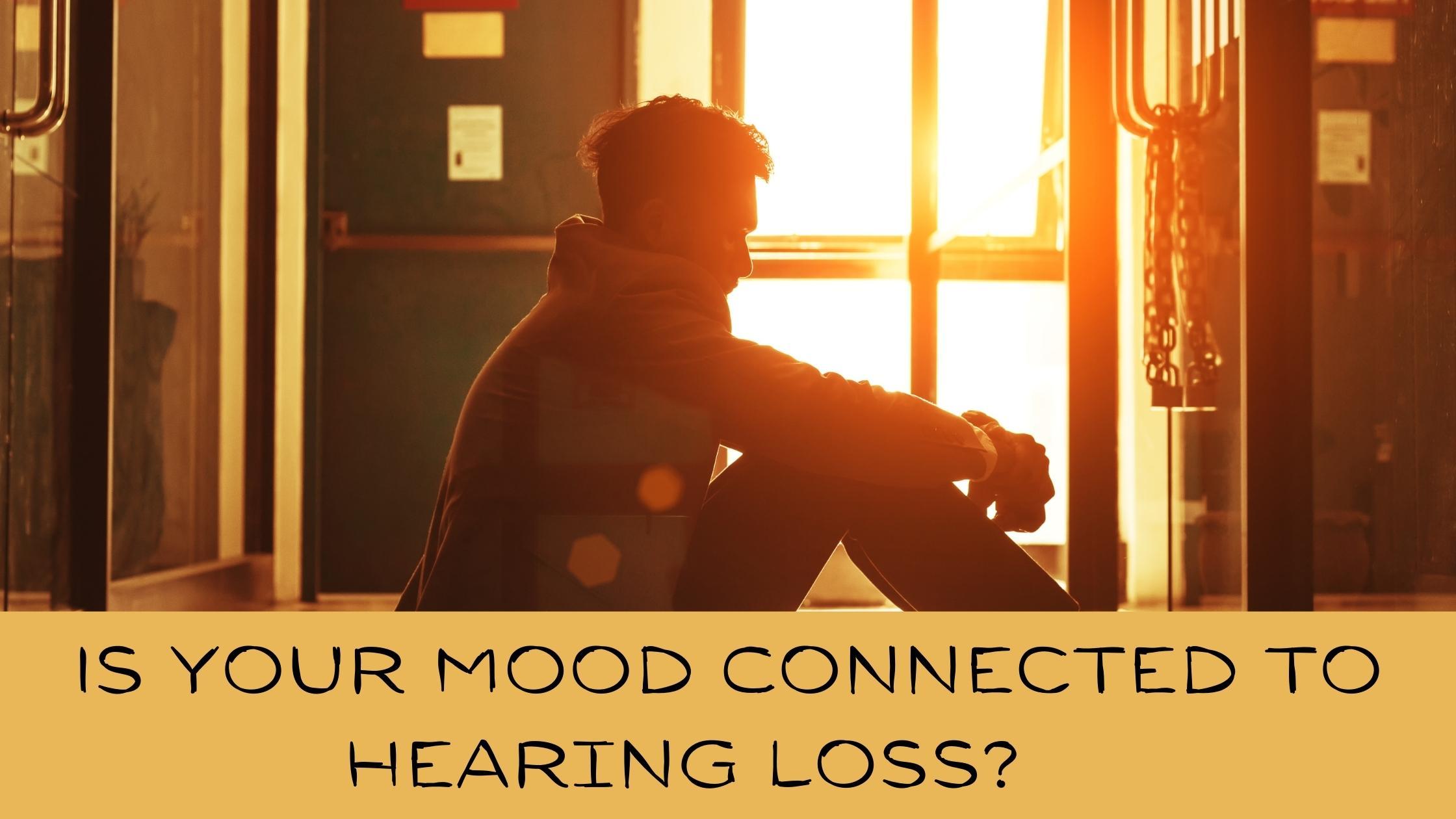
- A Guide to Different Hearing Aid Styles - May 6, 2025
- What is the Lifespan of Hearing Aid Batteries? - April 27, 2025
- Understanding the Different Types of Assistive Listening Technology - April 15, 2025
Hearing loss affects more than just your ears; it’s generally documented to have repercussions in other areas of your life. For example, hearing loss can influence your balance and coordination, as well as your heart health and mood. Although it’s easy to blame a bad mood on waking up on the wrong side of the bed or poor luck, researchers are discovering that hearing loss might affect our ability to respond to pleasure stimuli as well as cut us off from our natural mood boosters.
Hearing & Your Mood
Untreated hearing loss can often provoke destructive social patterns and make people especially susceptible to anxiety, depression, and isolation. Hearing loss taxes our ability to comprehend and participate in communication with others. Those with undiagnosed hearing loss may find themselves increasingly avoiding social situations because following a conversation or enjoying a concert has become draining rather than enjoyable. Without our ability to comprehend sound, even the events we enjoy most -like parties, dinners, and sports games- can seem unmanageable.
What may begin as an occasional avoidance may become frequent avoidance and negative conditioning associated with social interaction. Feeling inept at communication quickly exacerbates social isolation. The difficulty in navigating sound people with untreated hearing loss can leave them feeling frustrated and alone. This cut-off from easy modes of communication can provoke depression and anxiety. Social connection, essential to our mental health, becomes difficult and strained, and patterns can reinforce adverse mental health conditions.
Although many times hearing damage is irreparable, the good news is that most permanent hearing loss is treatable. Hearing aids can help people with hearing impairment regain their social footing and re-engage with their social networks and support systems. Reconnecting to communication and comprehension can alleviate some of the underlying causes of social anxiety and depression and help people with hearing loss stay connected to the people and things they feel closest to.
Dopamine’s role in your mood
A study coming out of Washington State University Vancouver looks deeply into the relationship between the neurotransmitter dopamine and hearing. Their findings indicate that hearing loss can limit dopamine’s effects and make us moody and vulnerable to other health issues.
What exactly is dopamine, though, and why be concerned with it? Dopamine occurs naturally in the body and works as a hormone linked to incentive building in the brain. Dopamine helps the mind experience pleasure and extensively regulates moods and emotions, metabolism, sleep, and thought processes. Dopamine deficiency has been connected to schizophrenia and Parkinson’s disease, where cognitive processes and motor skills fall out of balance. Incorrect levels, dopamine works as a neurotransmitter to keep some of our body’s most nuanced functions running smoothly.
Dopamine and your hearing health
Just as dopamine finesses how the body regulates itself, it is also very involved in how we process the world around us, including sounds we hear. For example, French data from 2006 demonstrated how dopamine, and the protein that distributes it in the body, are required for the proper functioning of the auditory nerve.
The corrosion of the delicate workings of the inner ear and auditory nerve is responsible for most permanent hearing loss. As research indicates, when dopamine is removed, the auditory nerve neurons deteriorate, as does their ability to respond to sounds. Dopamine’s function of building motivation and reward in the mind’s structure may be linked to how we distinguish and prioritize sound. Enjoying conversation, music, and other sonic entertainment is also connected to the pleasure centers in the brain, and limitations on these stimuli can make a lasting impression on our mood.
At the University of Washington Vancouver, the effects of dopamine and hearing stimuli were being studied on mice with and without genetically introduced Parkinson’s disease. Parkinson’s link to dopamine levels allows researchers to assess the mice as they respond to an evocative sound stimulus, such as mouse mating sounds.
Treating Hearing Loss
Do you experience moodiness that may be related to your overall hearing health? Have you noticed trouble or changes with how you hear? If so, it’s time to set up an appointment with us. Our thorough hearing exam will help diagnose any hearing issues you may be experiencing and get you connected with answers. Hearing your best is deeply linked to feeling your best, so start on the path to both today!
